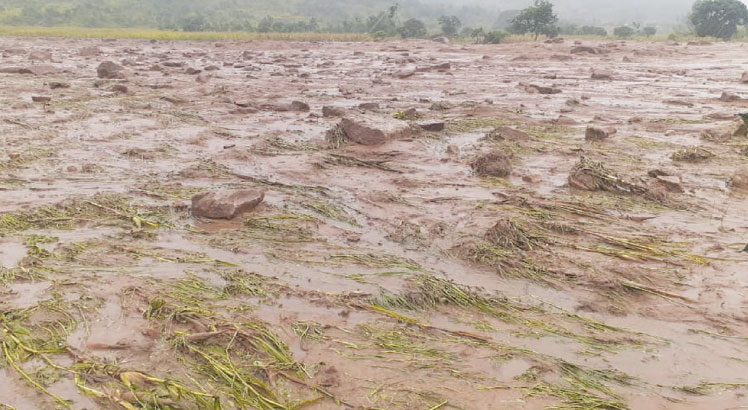The World Bank says Malawi faces food price crisis, particularly the staple grain maize, largely on account of the weather-related shocks and the continued harsh economic vulnerabilities.
The World Bank, farmers and an agriculture development policy expert have said the situation will reduce consumption levels, resulting in the declining welfare of the people.
In its latest Food Security Outlook for March 2023, the Bretton Woods institution said that food prices will remain higher and more volatile than currently projected.
The bank said food prices are expected to remain above the most recent five-year average as food prices are forecast to rise further.
Speaking in an interview yesterday, Frighton Njolomole, a long-time farmer and former president of Farmers Union of Malawi, said the loss of some agriculture fields in the Southern Region due to Tropical Cyclone Freddy will have a bearing on food prices.
He said: “Save for the challenges in the Affordable Inputs Programme, outlook for agriculture produce, mostly maize, was good this year. However the cyclone which has affected some parts in the South, will affect maize availability.
“This is likely to exacerbate the already high maize prices as it will mean reduction in food for some households.”
Consumers Association of Malawi executive director John Kapito said the rise in food prices, which is expected as the country suffers effects of the cyclone, is a cause for concern for consumers.
‘It is no secret that food prices will go up, defying the harvest season as agriculture fields have been washed away and economic activities have been disrupted.
“Our hope is that the government will quickly come in to cushion the poor by among other boosting social cash transfer programmes as well as encouraging early planting to replace what has been lost,” he said.
In a separate interview yesterday, village head Mataka of Chiradzulu said his village suffered a double blow as maize prices were already high in his area.
He said: “Just as we were about to harvest, raising hopes for improved prices of maize, our fields have been washed away.
“Obviously, prices of maize will not go down as there will be many people chasing less maize on the market. The suffering continues.”
Agricultural development policy analyst Tamani Nkhono-Mvula said in an interview that as rise in food prices is inevitable, coping mechanisms should be put in place.
He said: “Southern Region is high in the production of crops; hence, the effects of the cyclone will definitely have an impact on food prices, a situation which requires authorities to prepare for the worst and consider mitigating factors such as winter cropping to ensure availability of food.
“We also need to ensure that institutions such as Agricultural Development and Marketing Corporation and National Food Reserve Agency have enough maize to flood the market because if they do not, then indeed food prices which are largely constituted by maize will be high this year.”
Maize prices have remained elevated with the current prices at around K40 000 for a 50 kilogramme (kg) bag, which is above the previous year and the five-year average for the post-harvest period.
Meanwhile, National Statistical Office figures show that inflation rate for February 2023 rose to 26.7 percent from 25.9 percent in January on account of rising food prices.
In Malawi, maize as part of the food component, contributes about 53.7 percent in the consumer price index, an aggregate basket of consumer goods and services for computing inflation.
The post World Bank warns of food price crisis first appeared on The Nation Online.
 Moni Malawi
Moni Malawi 

